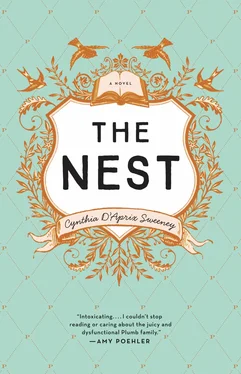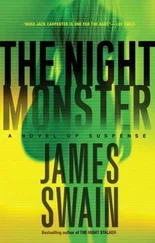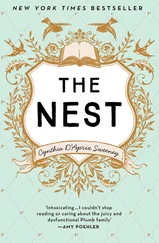She’d helped Leo because Harold had insisted she take care of the situation as swiftly as possible. He didn’t want any of his multiple business partners, already skittish in the current financial environment, to associate him with a publicly humiliating and possibly financially gutting lawsuit. George’s connections, the family’s long-standing reputation locally, and a fat check got the job done. But she’d also taken pleasure in her magnanimous gesture. She’d felt, for a change, capable and maternal. She liked being able to wipe the slate for Leo and offer him a second chance. She believed in second chances, sometimes more than first chances, which were wasted on youth and indiscretion. Her second marriage was the one she deserved even if it was a little staid, a little lacking in drama and the physical connection she had with Leonard. But Harold was good to her; she was taken care of; her “bottomless desires” satisfied.
And still she had to contend with this execution squad of her own children, complete with Madame Defarge at the head of the conference table. Who was casually cruel now? This was how it had always been: Nothing she did was good enough; what she did for one disappointed another. She couldn’t win. When would it end? She searched their faces again, looking for some sign, some small indicator that they’d come from her and Leonard. Aside from physical traits, the easiest mark to hit, she could see nothing. Nothing. All she could think was, I don’t recognize a single one of you.
“Mom?” Melody said again.
“This is a conversation you need to have with Leo,” Francie finally said. “I’m sure he will be able to repay you as soon as he’s settled with Victoria. I understand he’s selling nearly everything — the apartment, the artwork. Isn’t that right, George?”
George cleared his throat, made a little steeple with his fingers, and squinted as if a bright ray of sun had suddenly appeared in the windowless conference room. “He is, but I have to tell you that most of it is going to Victoria.”
“What do you mean by most of it?” Melody said.
“I mean, pretty much all of it. There will be some left, enough to tide him over for a bit, help him get settled until he finds a job.” George paused, knowing he was delivering more bad news. “As you can imagine, Victoria could have made things quite difficult and this was how it shook out.”
“What about Leo’s insurance?” Melody said. “Shouldn’t he have some kind of liability coverage?”
“Yes, well, that was another unexpected complication. It seems Leo had lapsed payment on quite a few bills, including insurance.”
Jack massaged his temples as if tending to a migraine. “So let me recap. Essentially, all Leo’s assets are going to paying off Victoria to get rid of her, keep her quiet, whatever, and all of our money is going to the waitress because of Leo’s mess.”
George shrugged. “I would phrase it in a more nuanced fashion, but essentially? Yes.”
“Matilda Rodriguez,” Bea said.
Jack and Melody looked at Bea, confused. “Her name,” Bea said, impatient. “You could at least use the waitress’s name.”
“Are you humming?” Jack said, turning to Melody.
“What?” Melody startled. She was humming. It was a nervous habit, something she did when she was worried or anxious. She was trying not to think about the accident. “Sorry,” she said to the room.
“You don’t have to apologize for humming,” Bea said. “For God’s sake.”
“It’s that song from Cats, ” Jack said. “I want to scream.”
“Before we wind up,” Francie said, cutting off the all-too-familiar bickering, “I’d like to acknowledge all George’s work. I won’t get into the specifics, but suffice it to say that getting Leo to rehab, negotiating the settlement, doing what needed to be done — at the local level — to take care of this, keep it out of the paper, was a superb effort and we’ve been remiss in not thanking him yet for his truly excellent effort, the speed and the efficiency and so on and so forth.” She nodded at George, like a monarch recognizing a loyal subject.
“We were lucky,” George said, avoiding looking at Bea, whose hands had stilled. “Things broke our way. And your mother is right. This could have been much, much worse. I file this one under ‘best-case scenarios.’”
“I guess we have a slightly different filing system,” Melody said.
“This is in all our best interests.” Francie stood and pulled on her coat. Melody had to stop herself from reaching over to touch the rich navy fabric. “We don’t want this all over the East End.”
“I don’t care what’s on the East End,” Jack said.
“Me neither,” said Bea, aware that the meeting was about to wrap up and maybe she’d been just a little too quiet.
Francie was wrapping a lavender scarf around her neck. Melody stared. The scarf was so light and diaphanous it reminded her of a passage from a children’s book she used to read to the girls when they were little, about a princess who had a dress that had been spun by moths from moonlight.
“Your scarf,” Melody said. “It’s beautiful.”
“Thank you.” Francie looked surprised. She fingered the cloth a little and then unwound the scarf, folded it into a neat square, and pushed it across the conference table until it was in front of Melody. “Here,” she said. “Take it.”
“Really?” Melody, in spite of herself, was thrilled. She had never owned anything quite so delicate. It had to be expensive. “Are you sure?”
“I’m sure,” Francie said, pleased to see the appreciation on Melody’s face. “It’s your color. It will brighten the pallor a bit.”
“Have you spoken to Leo lately?” Bea asked Francie.
Francie watched Melody wrap the scarf around her neck. It wasn’t her color, but it still looked nice. She motioned for Melody to come closer and she adjusted the ends of the scarf, tucking them into place. “There,” she said. She turned to Bea. “I spoke to him last week. Briefly.”
“Is he okay?” Bea said.
Francie shrugged. “He’s Leo. He sounded perfectly fine, considering.”
“Does he understand your intentions?” Jack said. “That your incredible generosity on our behalf is not a gift but a loan?”
“I’m sure Leo doesn’t need to be told to be accountable for the money; he’s not dumb.” Francie was pulling on her gloves now.
“But he’s Leo,” Jack said. “He’s supposed to magically start caring about what happens to us?”
“We should give him a chance,” Bea said.
“You’re all delusional,” Jack said. He sounded more tired than angry now.
Francie’s brief sense of accomplishment over gifting Melody the scarf evaporated. She gave no one in particular a brittle flash of smile. “I’ll make sure he gets in touch with you as soon as he’s back in the city,” Francie said. “I can do that.”
“And then what?” Jack asked.
Francie shrugged. “Invite him to lunch.”
Meeting at the Grand Central Oyster Bar was part convenience — Melody disembarked at Grand Central, which was halfway between downtown where Jack and Leo lived and Beatrice’s place uptown — and part nostalgia. On the rare occasion when the elder Plumbs had brought all four children into the city, they had always dined at the Oyster Bar, summoning plates of oysters with exotic names — Chincoteague, Emerald Cove, Pemaquid — and steaming bowls of oyster stew. The Plumb siblings loved the bustle of the dining room (where they never sat) and the ordered efficiency of the sprawling, no-reservations needed, sit-down counter (where they always sat). They loved the dramatically vaulted ceilings covered in ivory Gustavino tiles and the strings of white lights that managed to make the space feel both lushly romantic and slightly antiseptic.
Читать дальше
Конец ознакомительного отрывка
Купить книгу












